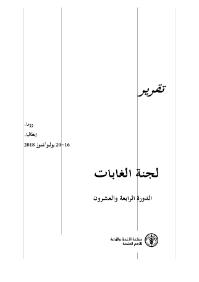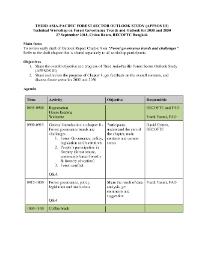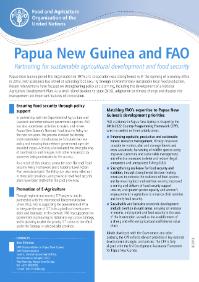Focal point
Location
The Food and Agriculture Organization of the United Nations leads international efforts to defeat hunger. Serving both developed and developing countries, FAO acts as a neutral forum where all nations meet as equals to negotiate agreements and debate policy. FAO is also a source of knowledge and information. We help developing countries and countries in transition modernize and improve agriculture, forestry and fisheries practices and ensure good nutrition for all. Since our founding in 1945, we have focused special attention on developing rural areas, home to 70 percent of the world's poor and hungry people.
Members:
Resources
Displaying 301 - 305 of 5074الدورة الرابعة والعشرون للجنة الغابات تقرير
الدورة الرابعة والعشرون للجنة الغابات تقرير
Characterization of the agricultural drought prone areas at global scale
Drought is one of the main causes of food insecurity. In 2011, the horn of Africa has faced the worst drought in 60 years. An estimated 12.4 million people suffered from a massive food shortage. To mitigate the impact of agricultural drought, it is of high importance to dispose of timely and reliable information of the condition of food crops and grassland areas in all regions and countries in the world.
Manejo sostenible de la vida silvestre - Unasylva 249
La gestión sostenible de la vida silvestre es objeto de considerable atención en el debate internacional debido a su importancia para la conservación de la biodiversidad, la seguridad humana, los medios de subsistencia y la seguridad alimentaria. Las poblaciones locales han gestionado las especies silvestres durante milenios, incluso a través de la caza. En este número se presentan ejemplos suficientes para demostrar que en la era moderna también es factible la gestión sostenible de la vida silv estre.
Third Asia-Pacific Forest Sector Outlook Study (APFSOS III), Agenda for theTechnical Workshop on Forest Governance Trends and Outlook for 2030 and 2050
To review early draft of Outlook Report Chapter 8 on “Forest governance trends and challenges”.
Papua New Guinea and FAO
Papua New Guinea joined the Organization in 1975 and cooperation was strengthened with the opening of a country office
in 2013. FAO assistance has aimed at achieving food security through environmentally sustainable local food production.Recent interventions have focused on strengthening policy and planning, including the development of a NationalAgriculture Development Plan. As a small island developing state (SIDS), adaptation to climate change and disaster riskmanagement are important features of cooperation.










